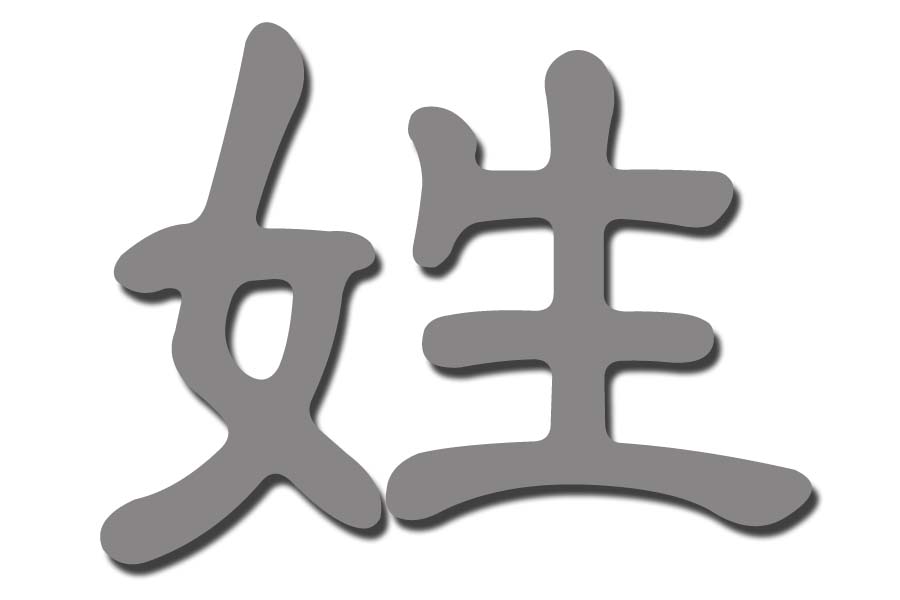Interest in genealogy or ancestral roots is growing worldwide. This is so true among the Chinese who continue to observe the tradition of honoring ancestors from the distant past.
Ancestral shrines that proudly display the family lineage, listing forefathers and descendants of the same surname, are commonplace even in modern China.
In response to the continuing interest in our heritage and roots, Tulay’s “Origins” column will examine the beginnings of Chinese surnames.
We value highly our family, clan and ancestors. We have a deep sense of clan and our lives are very family-centered. Such importance is recognized by the West, which gave these Chinese traditions religious terms, “ancestor worship” and “filial piety.”
Family names, in particular, are important to the Chinese. Just look at how the Chinese write their names—the surname precedes the given name. Moreover, Chinese families exert great effort to keep track of their genealogy. Some families can trace their roots back thousands of years.
China is the first country in the world to use surnames. The practice began 5,000 years ago. Other parts of the world started using surnames only 1,000 years ago. It took 600 years before common names became prevalent in England. In continental Europe, the common use of surnames has a history of only 400 years.
The total number of surnames that have emerged since ancient China is more than 22,000. But only about 3,500 of these are used by the Chinese today. Of these, 100 are “big surnames” (大姓), so called because of the big populations that bear these family names.
The five foremost surnames: 李 (Dy, Dee, Lee in Hokkien, Li in Mandarin or putonghua) with a population of 92 million; 王 (Ong in Hokkien, Wang in Mandarin), more than 90 million; 張 (Tiu in Hokkien, Zhang in mandarin), more than 90 million; 劉 (Lao in Hokkien, Liu in Mandarin), more than 65 million; and 陳 (Tan in Hokkien, Chen in Mandarin), more than 55 million. The five surnames combined have a population of more than 390 million!
The respective population of the first three surnames exceeds the total Philippine population.
The contemporary 100 big surnames in China based on population size, according to a Jan. 10, 2006 report by the Xinhua News Agency (left to right), are:
李 王 張 劉 陳 楊 黃 趙 周 吳
徐 孫 朱 馬 胡 郭 林 何 高 梁
鄭 羅 宋 謝 唐 韓 曹 許 鄧 蕭
馮 曾 程 蔡 彭 潘 袁 于 董 余
蘇 葉 呂 魏 蔣 田 杜 丁 沈 姜
范 江 傅 鍾 盧 汪 戴 崔 任 陸
廖 姚 方 金 邱 夏 譚 韋 賈 鄒
石 熊 孟 秦 閰 薛 侯 雷 白 龍
段 郝 孔 邵 史 毛 常 萬 顧 賴
武 康 賀 嚴 尹 錢 施 牛 洪 龔
Of the 100 big surnames, 73 can trace their origins to He Nan province (河南, literally south of the yellow river).
In 1994, Kaisa Para Sa Kaunlaran gathered information from tombstones from Chinese cemeteries all over the country.
Data from the tombstones reveal the 20 most common Tsinoy surnames:
| Hokkien/Mandarin | No. | % |
|---|---|---|
| 陳 Tan/Chen | 3,074 | 9.58 |
| 蔡 Chua/Cai | 2,624 | 8.17 |
| 黃 Uy, Ng/Huang | 2,257 | 7.03 |
| 吳 Go/Wu | 2,152 | 6.70 |
| 施 Sy/Shi | 2,125 | 6.62 |
| 林 Lim/Lin | 2,002 | 6.24 |
| 李 Lee/Li | 1,756 | 5.42 |
| 王 Ong/Wang | 1,647 | 5.13 |
| 許 Co/Xu | 1,428 | 4.45 |
| 楊 Yu/Yang | 1,298 | 4.04 |
| 洪 Ang/Hong | 1,187 | 3.70 |
| 莊 Cheng/Zhuang | 888 | 2.77 |
| 張 Tiu/Zhang | 649 | 2.02 |
| 劉 Lao/Liu | 577 | 1.80 |
| 曾 Chan/Zeng | 487 | 1.52 |
| 葉 Yap/Ye | 444 | 1.38 |
| 蘇 So/Su | 394 | 1.23 |
| 郭 Que/Guo | 378 | 1.18 |
| 鄭 Ty/Zheng | 345 | 1.07 |
| 柯 Cua/Ke | 319 | 0.99 |
Isn’t it surprising to find that 施 (Sy, See in Hokkien and Shi Mandarin) and 洪 (Ang/Hong), both of which are common surnames in the Philippines, are just No. 97 and No. 99, respectively, in China?
Watch out for the surname 李 in our next issue.
First published in Tulay Fortnightly, Chinese-Filipino Digest 22, no. 7 (September 08-21, 2009): 5-6.





